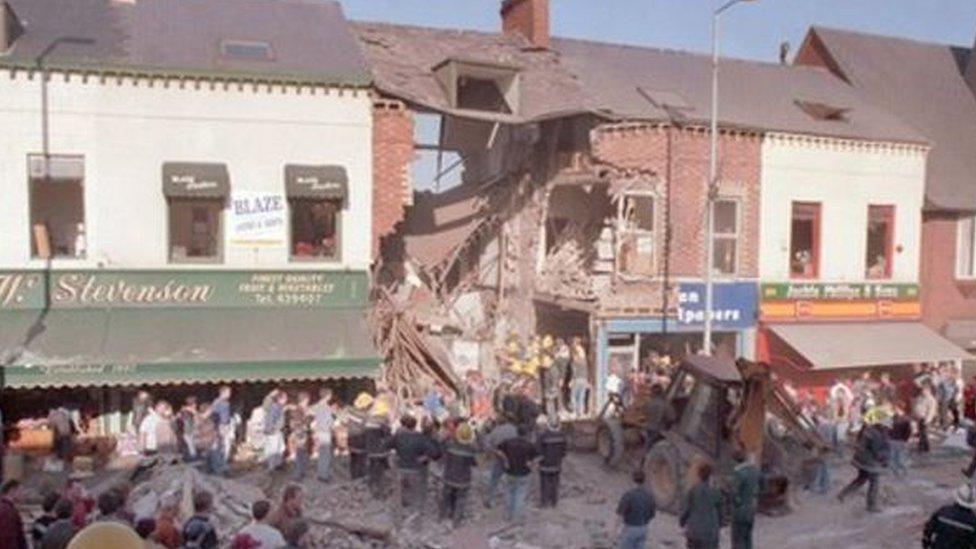Shankill bomb: Paramedics recall horror of finding victims
- Published
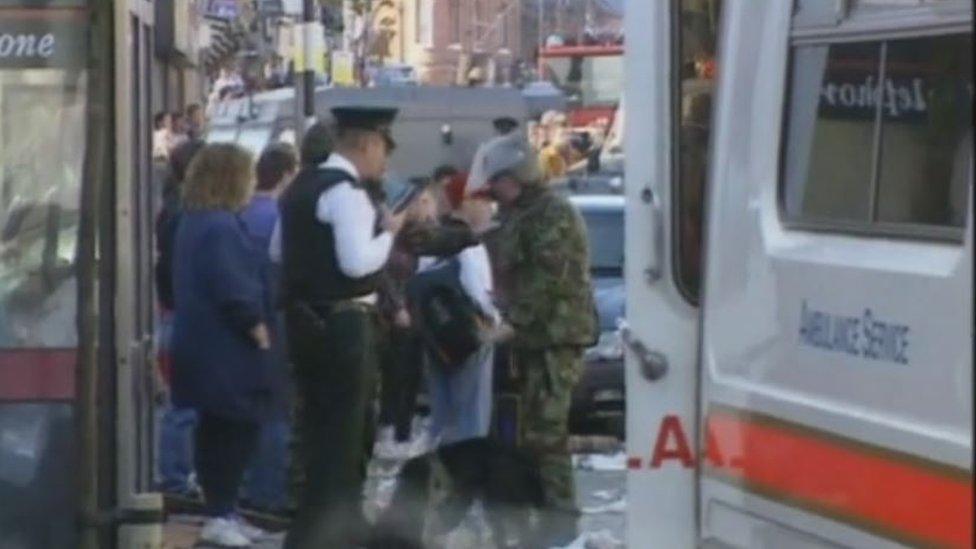
Two paramedics, who have never previously spoken about their memories of finding and treating victims of the Shankill bomb, have described the horror of what they encountered in the wake of the explosion.
Eamonn Ferguson and Paddy McGlinchey were two of the first members of the emergency services to arrive at the scene of the atrocity on 23 October, 1993.
Nine Protestant civilians and an IRA bomber, Thomas Begley, were killed in the attack in Belfast.
Speaking in the BBC Northern Ireland documentary The Shankill Bomb, Mr McGlinchey described the moment the call came through - at about 13:10 BST.
"We were initially told it was the Berlin Arms pub. And I have to say, as soon as they said the Berlin Arms pub on a Saturday, which was a bright, sunny day, I thought 'My God'," he said.

A BBC documentary with first-hand accounts from survivors, relatives, and people involved in the rescue effort after the Shankill bomb will be shown on BBC One Northern Ireland on Monday 22 October at 21:00 BST.

The bomb actually exploded at a different location - Frizzells Fish Shop on the road.
The chaos that the paramedics encountered when they arrived at the scene of the attack made the task of getting to the victims a difficult one, said Mr McGlinchey.
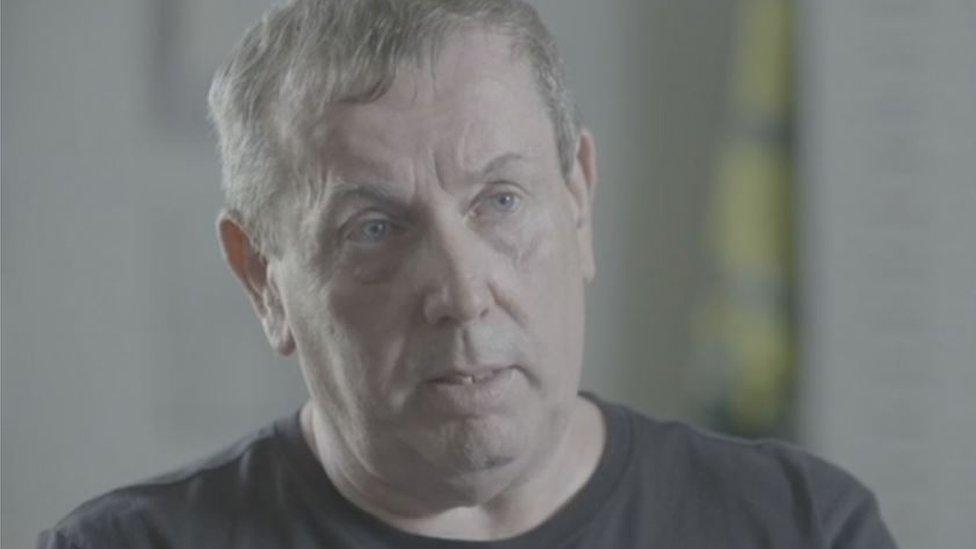
"The crowd was getting so intense, that it was starting to impede on us being able to do our job" - Paddy McGlinchey
"The crowd was getting so intense, that it was starting to impede on us being able to do our job, although it was very understandable why, because people thought they had relatives in there," he said.
In the midst of the pandemonium, Mr McGlinchey was told that a second ambulance on the scene could not get through because of his, so he ran back to move it, only to find that it had been driven away.
"I had left my keys in the ambulance, I ran back... but it was gone," he said.
"The ambulance was taken by a member of the public, who probably had good intentions, but they may have loaded that up with patients with broken arms, broken limbs... and thinking they were doing a good job getting six people to hospital, but we don't need those six people taken to hospital.
"We needed [the ambulance for] the people who were trapped under the rubble who are barely breathing."
The paramedics climbed through the rubble in an effort to rescue victims and identify human remains.
Mr Ferguson, who recalled travelling to work on the morning of the attack and having a feeling "something bad was going to happen [as] tensions were really high in both communities", also experienced the horror of uncovering the bodies of two children.
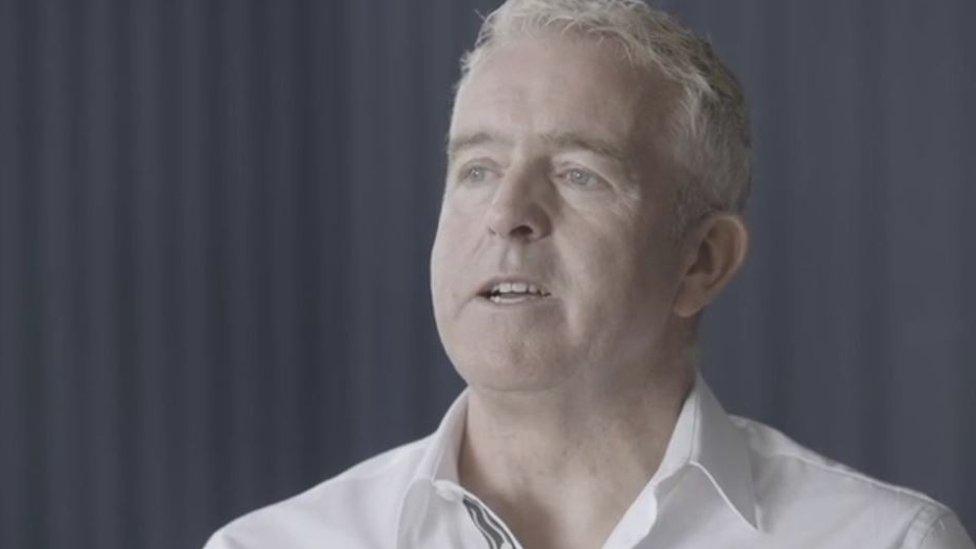
"I could tell the child was dead" - Eamonn Ferguson
"I sort of moved a stone away and that's when I saw a child's face looking at me through the rubble," he said.
"I could tell the child was dead but, for some reason, I just thought if we could somehow manage to free this child [from the rubble] then we might be able to resuscitate them.
"We were digging and digging, trying to free the child... then I saw another arm underneath the child, which was another child."
Visibly moved by the memory of what he saw, Mr Ferguson added that he has been haunted by the thought that by walking on the rubble, he was stepping on the children.
"We had been sort of trampling up and down on the site and, you know, I felt like I'd been standing on top of the children... if I'd been able to get to them quicker, it might have made a difference. I don't know, but that's just something I've lived with for 25 years."
After removing the two dead children, Mr Ferguson immediately had to focus on another fatality.
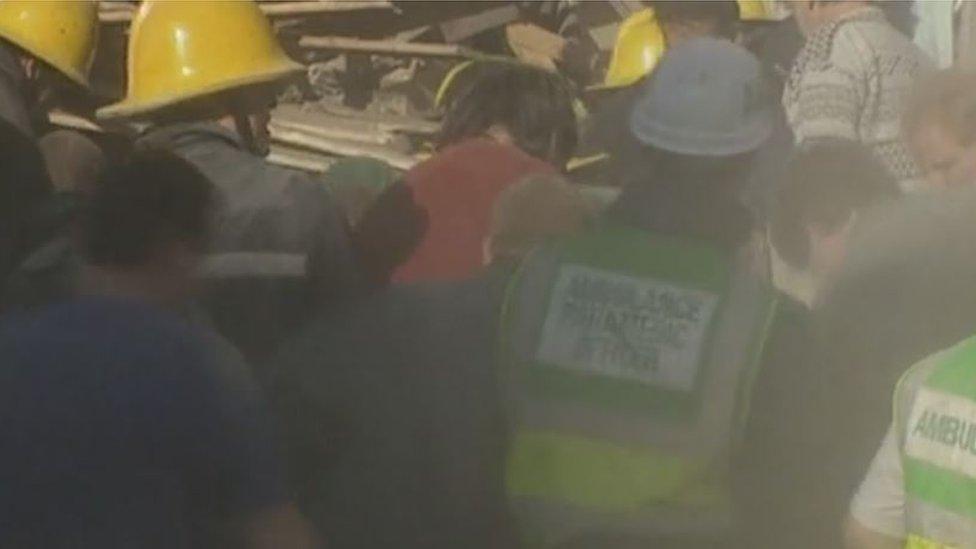
"This girl had catastrophic injuries. She was obviously dead, lying face down," he said.
"Members of the public were pulling her body to try and free her from the rubble."
Mr McGlinchey also recalled the trauma of finding bodies buried in the debris.
"You were hoping to dig down and find that it was just rubble, that there weren't as many people there as we first thought. Then you realise, I've found a body here... and you drop your head," he said.
"This is someone's relative, someone's son, someone's wife, someone's daughter."
A BBC documentary with first-hand accounts from survivors, relatives, and people involved in the rescue effort after the Shankill bomb will be shown on BBC One Northern Ireland on Monday 22 October at 21:00 BST.
- Published20 October 2018
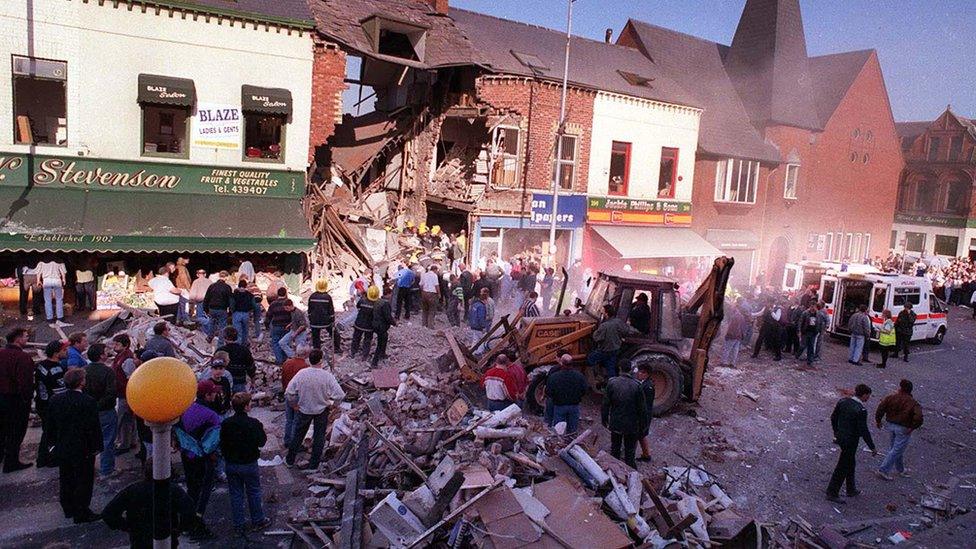
- Published19 October 2018
